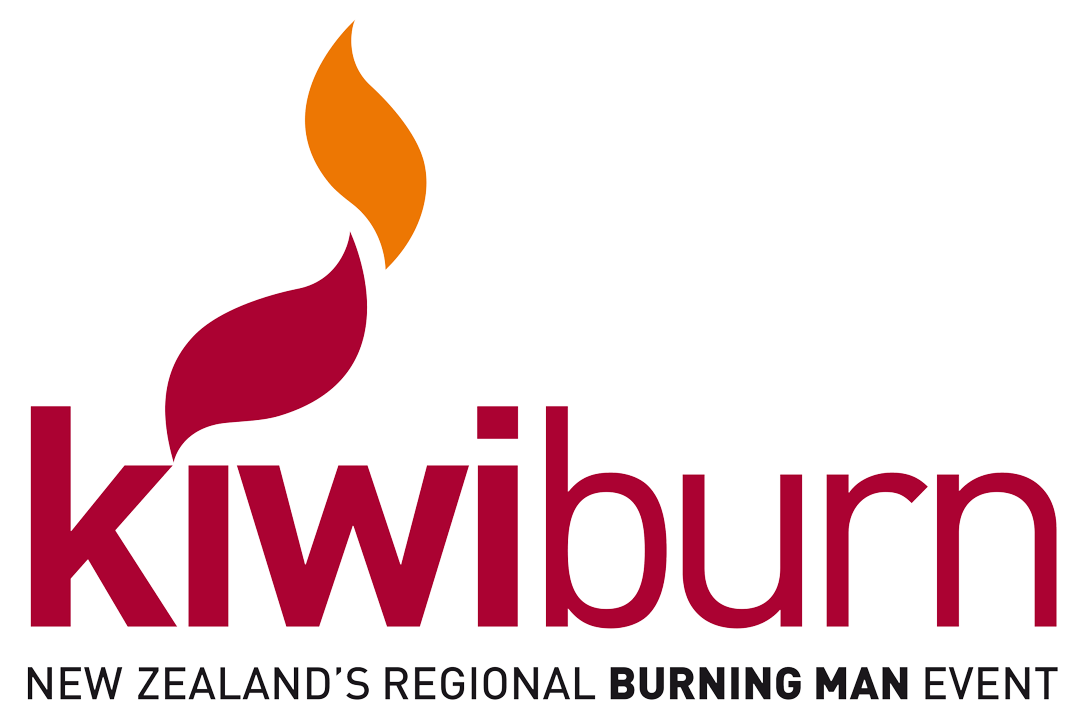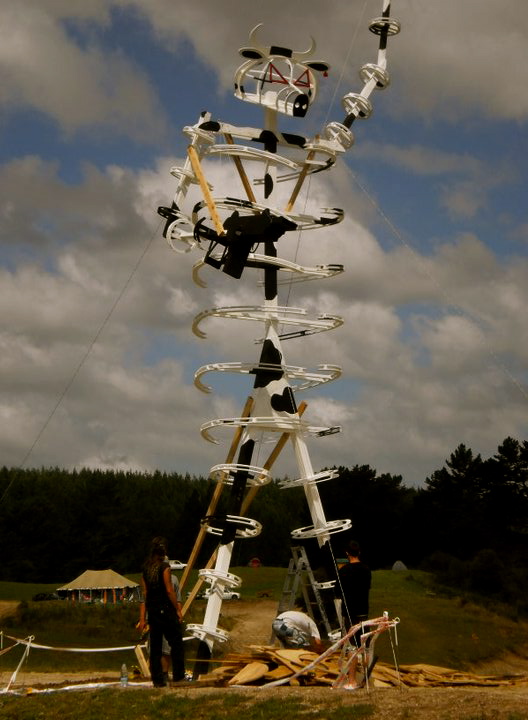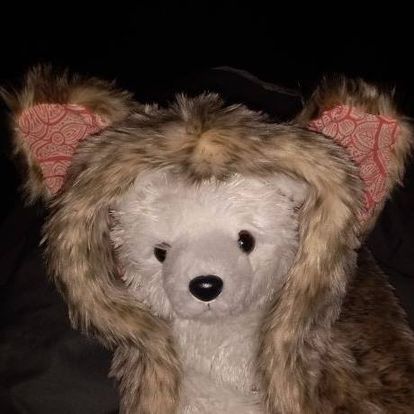Decommodification. It’s the Third Principle.
Hey Fam, Navigator here. I’d like to share a personal story with you. At my first ever Burn, Kiwiburn Twisted Reality in 2011, there was a second Effigy built. Back in those days, we were in a cow paddock (as opposed to a primarily sheep paddock – my, my how times have changed!) and the second Effigy was a giant cow with a machine gun. It was pretty damn radical.
On Burn night, I had little idea of what to expect, I had heard a bit about the procession, but not much. I found myself around the perimeter alone, having quickly lost my friends in the commotion. I was looking to connect with others, to connect myself with the excitement. I felt alone and a bit nervous.
In the spirit of Radical Self-Reliance, I spotted a friendly-looking face nearby and made my way over to introduce myself (in my usual awkward fashion). I noted his lovely, strong Irish accent. Attempting to further the conversation, I asked him, “So what do you do for a living?” He turned to look at me with a surprising, twisted look on his face and replied, “Do you mean here on the Paddock or…?” I laughed nervously, “No, I mean, unless you live on the Paddock – wait, do you?” I looked him up and down, trying to glean any hints from his looks and found he wasn’t just wearing a perfectly assigned cowboy hat on top of his head, but he was in full ranch hand getup.
“Nah,” he said, now chuckling at me, “I don’t live here.” So, I repeated the question, “So, then, what do you do ‘out there,” referring to what I know now to be the ‘default world’. “Why do you want to know?” he asked. I was flabbergasted! I didn’t know how to respond to that! I did a quick self-brain scan: why did I want to know this? Why was it even important? Who cares what this guy does outside the Burn? Do I really actually care or am I just wasting people’s time with my poor attempt at small talk?
Wait a minute. Wait a minute, I said to myself. I am judging him! That’s it! I am asking him this question and gathering these observances so I can categorise him into a social data set, so I can turn him into a sum of his parts. I will put him into a nice, neat little box I have created for people like him (whoever he is) in my mind and he will be safe. I will be safe. I will know where I stand. I will know where he stands (according to me and my unique discriminations). I will simplify him down to a name, a location, a profession, a physical presence – a human commodity.
It was that very moment that I realised that practically every first interaction with a stranger I had had up to that point in my life was false. They were not genuine. They were experiences born out of a capitalist society driven by a “what can you do for me” or a “how can I sell you this” approach. Driven by the fear of having more daring conversations, being too scared to step out of line, to challenge the status quo, the purposeful avoidance of my strong desire to engage in the complexity of other beings and establish meaningful relationships.
At this point, I had been silent for an awkwardly long amount of time (and my face was probably all shades of gnarly as this huge revelation was unraveling in my mind). Clearly taking pity on me, he spoke up at last, “I am a Physiotherapist, with a focus on sports injuries.”
“Oh,” I squeaked. I quickly searched my brain for anything I might know about this profession, any connections I may have. Did I know anyone else who does this? No. Have I been to one? No. Do I like any sports at all? No. I had nothing. Nothing to lend any sort of slight credence to me having persisted with this line of questioning.
“I have nothing to say about that,” I said, remorsefully. “Yeah,” he half-chortled, “not so very interesting at this moment, eh?” He let that sink for several minutes before turning to me again, asking, “So do you want to know to know what I do for real?” I nodded, sheepishly. “I am a Cow Wrangler,” he said. “Right, yeah, that makes sense,” I replied, weakly gesturing to his outfit. “You see that cow over there,” he continued, pointing towards the giant cow with the machine gun, “I wrangled that. That’s what I do. I am a Cow Wrangler.”
And so began my love story with the Ten Principles. The moral of this story is: commodification happens all around us every day. We seek to commodify each other (and even ourselves) into objects or things and, thus, see each other as less than human beings. One key aspect of practicing Decommodification is when we work together to undo this.
That’s just my story though. We should get some other input! Let’s meet a few other beautiful, unique, complex human beings and hear what they have to say about the Third Principle, Decommodification…
Meet: Tris
I’m about to go to my fourth Kiwiburn in a row. I help run a Theme Camp with my partner and friend and love how the Burn has helped me let my guard down and open up to others. I also like running around butt-naked and dancing erratically to doof doof, so, yeah. Miao.
Meet: Feenix
This will be my third kiwiburn. I have worked in many paid positions and many volunteer roles.
Meet: An Anonymous Magpie
I have attended eight Burns to date, love participating through volunteerism, interactive art, and general fuckery. Someone I admire once said, “Even though your heart may be black, we all are hippies, deep down.” I think that pretty much sums me up.
Nice to Meet You All! Now, Let’s Get to the Juicy Bits…
What does Decommodification mean to you?
Decommodification means doing things for reasons other than profit. Performing your art because you enjoy it and want to share it, knowing your “career” isn’t advancing because of any noises you make on the Paddock. – Tris
Decommodification on the Paddock helps bring us to a better, collective and individual understanding of the Principle of Radical Self-Reliance and drastically changes how we share our unique gifts with each other. It then challenges us to take these learnings and spread them outside of the Burn. – An Anonymous Magpie
When I meet someone, and they appear friendly, I know that it is not because they want to sell me something. – Feenix
Being there to experience, not to buy or sell. And, by removing the monetary factor, also removing a level of falsehood that comes with trying to make a buck, and the subsequent mistrust that comes with trying to figure out if someone is attempting to con you into buying. – Tris
Can you provide an example of Decommodification which you have either engaged in personally, as a group, or witnessed?
There is a definite link between the Principles of Gifting and Decommodification. Our camp, Existentially Bent, offers daily sharing circles and has offered costume support. At my first Burn, I wandered around in the morning giving out cookies. Giving made me feel good. As I wandered the paddock, random people were gifting various treats – it also felt good to receive. – Feenix
Performing music and rituals at the Burn without expecting to gain anything from that has helped me appreciate how much I enjoy the sheer experience of performing, and this I have taken back with me. – Tris
I feel the exchange of hugs rather than handshakes is a physical manifestation of the rejection of commodification. Handshakes are notoriously linked to business agreements and monetary exchange. A hug, if one is brave enough, is like a short window into another’s soul. You feel their breath, their heartbeat, the emotions they are carrying, and their kindness. You are now connected as equals and intricate humans right from the outset. What a beautiful way to start a genuine relationship. – An Anonymous Magpie
Decommodification is very much tied to the principle of Gifting: there have been times at the Burn where I have given something to another, and they’ve been surprised and delighted I did not expect anything in return, and similarly times others have given to me and I have enjoyed their gift all the more because they did not expect anything in return. – Tris
How do you think Decommodification works to enhance our event/community?
One of my favourite ways that Decommodification enhances the event experience is through not advertising any musicians’ names, whether publicly, within the community, or-onsite. If you happen to stumble upon a famous DJ or band that is playing, that is a gift from the Burn. I have seen many acts I would have paid good cash money to see in the default world throughout the years, but these experiences were much more magical. – An Anonymous Magpie
The Principle of Decommodification reduces the number of people participating purely for financial gain, making the event safer for everyone. – Feenix
Too much advertising can be an assault on the eyes, it is refreshing to participate in an environment free from the constant overstimulation of reminders of capitalism. – An Anonymous Magpie
Decommodification helps us to communicate more directly, it helps us take off the masks we wear in the default world. I like that money exists. Money is extremely useful – it allows human beings to specialise at tasks, to become an expert in small fields. Money allows us to generalise the exchange of our skills so that, for example, I can buy apples from any apple shop, instead of having to search around for the one apple-grower who needs my historical-research specialty skill. But the cost of that extremely useful invention is the masks we put on in order to buy and sell things at the most advantageous price. Getting away from that mask for a week allows us to experience a more direct and honest human interaction, which is useful to me even though I don’t want to give up the benefit of money’s existence in the default world. Experiencing a week without the mask helps us learn how we can live and communicate more authentically with one another even after we put our masks back on. – Tris
On behalf of the KB community, thank you for sharing your insights on the Third Principle. Looking forward to meeting you all on the Paddock where you will personally have the pleasure of finding out what questions I ask now, during those first awkward introductory moments!
See you on the Paddock!
With Love, Navigator


